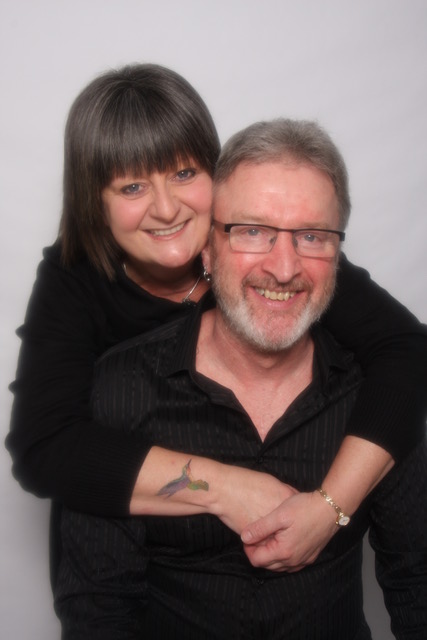A widow from Essex says she believes the side-effects of anti-depressants drove her husband to kill himself.
Denise Collins, aged 59, lost her husband John Collins on October 29 in 2018 when he was hit by a train at Kelvedon, Essex.
“My husband’s suicide was a total shock,” she said. “He was prescribed anti-depressants and sleeping pills over the phone by a GP who did not know him, because he was having trouble sleeping. He consulted the doctor after discovering his twin brother had been diagnosed with cancer. Days after taking the drugs, he killed himself.”
Looking for answers, Denise did some research into the medication John had been given. It didn’t take long before she learnt about the side effects of anti-depressants, including ‘suicidal thoughts’, which she says are not widely enough recognised.
She said: “These drugs are over prescribed to people who have life problems – money problems, relationship problems, self esteem and confidence problems – problems at work – rather than ‘mental health’ problems.”
Denise and John Collins
A psychological therapist, coach and trainer with two decades experience, Denise has her self taken anti-depressants. In the past she believed what she was told by her GP, that feelings of depression were the result of a chemical imbalance in the brain. She has since discovered this theory has never been scientifically proved. Following her discoveries after John’s death, she stopped taking them.
“I do not believe I ever had a mental health issue. I think I was just experiencing ups and downs of everyday life.
I stopped taking these pills at the worst time of my life, when I arguably I should have needed them the most. Since cutting them out, I feel emotions again. Sometimes I feel desperately sad, sometimes I feel nothing, but I also get to feel happy again, and I’m content with that.”
Denise said her business’ Facebook page for the Hummingbird Effect has been running for years, but since writing about the terrible side effects of anti-depressants, she has been blocked by Facebook from boosting posts or running ads and so is unable to continue to spread her message.
She said: “There are a lot of people who are very unhappy and they simply don’t know where to go for help. We are told that if you feel depressed you have depression and the solution is in a packet of pills. Since the introduction of SSRI medication in the 1980s, the number of people with mental health conditions has risen because people are self diagnosing, or being misdiagnosed by a health professional based on a ten minute phone call. Understandably, when anyone feels bad, they want to feel better. But despite what we have been led to believe pills are far from a safe or easy answer.”
When talking about the alternatives to medication, Denise added: “There absolutely are alternatives, there is a huge body of evidence on what works to help people deal better with adversity and live better lives. We need to normalise and humanise all our feelings, accepting that even painful emotions are normal rather than symptoms of an illness. If you feel sad, that’s alright, it’s not going to last forever. Life can just be difficult sometimes.”
“Many people seeking help would rather have therapy or social support. Therapy usually works best when someone finds the right therapist, as opposed to the right therapy. We need someone we trust, who really listens and has the tools to help us connect with our personal strengths. It’s all about human connection, honesty and authenticity. When people learn about how I lost John, they commonly say things like – if that happened to me I wouldn’t be able to cope. But the truth is most of us are stronger than we think.”
Denise also believes social media is damaging because it portrays an unrealistic image of other peoples’ lives.
She says: “If you think of the very best moments of your life – you probably didn’t get out the ring light – pose and post a picture on Instagram. Social media often shows a staged version of an event – created with the explicit purpose of showing it to others, rather than sharing an authentic experience. This is insidious because it makes those who are vulnerable feel desperate.”
She added. “I am not anti-medication. I am pro information. Information about the side effects of these commonly prescribed drugs and the alternatives that are available.”




